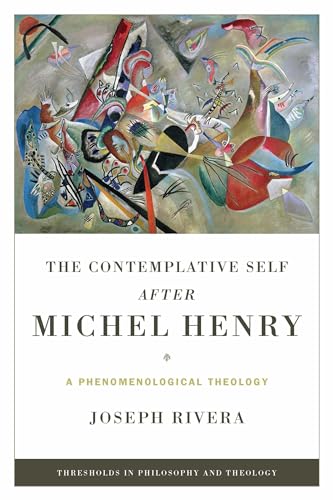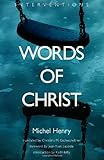In The Contemplative Self after Michel Henry: A Phenomenological Theology, Joseph Rivera provides a close and critical reconstruction of the philosophical anthropology of Michel Henry (1922-2002) while also addressing the question of how theology contributes to Henry’s phenomenology. In conversation with other French figures such as Derrida, Marion, Lacoste, and Barbaras, Rivera undertakes a global thematic study of Henry’s work. He shows how, for Henry, the theological debate is shifted onto a phenomenological problem, with a coincident will to pursue the epistemological efforts of Husserl and Heidegger.
The chapters tackle some of the most pressing debates in contemporary Continental philosophy, such as the “modern ego,†the nature and experience of temporality, and the constitution of the body and otherness, and how a theological discourse may illumine those anthropological structures. The book expands on the modern narrative of the self from Descartes to Nietzsche, opens up the particular lines of inquiry Henry advances in dialogue with those figures and phenomenology in particular, and highlights the surprising theological turns in Henry’s late work on Christianity.
Because Henry’s work is difficult, it is often misunderstood; Rivera’s own vision of the self, one that is shaped by Henry but not in full agreement with him, advances insights internal to Henry but also brings into sharp focus many problematic points in Henry’s phenomenological theology. An array of classical theological voices appear in the final chapters, such as St. Augustine, Tertullian, Irenaeus, Pseudo-Dionysius, and Gregory of Nyssa, all of whom are set in dialogue with Henry. A fresh and creative articulation of contemplation and selfhood, the volume is a valuable addition to the continuing conversation that seeks to build bridges between phenomenology and theology. Â
"English-language scholarship on Michel Henry is growing rapidly but still nascent. Joseph Rivera's book is well positioned to be one of the early classics in the field; it does not merely introduce Henry but builds on what comparatively little has been written about his work. Rivera uses his introduction to Henry's thinking as a platform for his own truly critical and constructive project." —Jeffrey Allan Hanson, Faculty of Theology and Philosophy, Australian Catholic University
"The Contemplative Self after Michel Henry presents an original and creative approach to the interpretation of the issue of what theology contributes to Michel Henry's phenomenology. The authors Joseph Rivera calls upon, such as Jean-Luc Marion, Jean-Yves Lacoste, Jean-Louis Chrétien, Derrida, MacIntyre, Ricoeur, Didier Franck, Husserl, and Merleau-Ponty, are intelligently evoked and quoted. Rivera looks to anthropological questions since, for Henry, theological questioning brings about consequences in terms of corporeality and ethics. Rivera's reading is both stimulating and true to Henry's work." —Jean Leclercq, Université Catholique de Louvain
"Far more than a summary and synthesis, Joseph Rivera conducts a sustained dialogue and impassioned debate with Michel Henry, along with other major figures in phenomenology, in an effort to construct a rich account of the contemplative self that moves beyond the long shadow cast by Descartes—one that gives primacy to embodiment, worldliness, and eschatological hope. Equally at home with philosophical and theological sources, and indebted to Augustine in its constructive aims, this work marks the impressive debut of a scholar whose instincts are to retrieve and freshly reimagine the seminal insights of the Christian tradition." —Brian D. Robinette, Boston College













